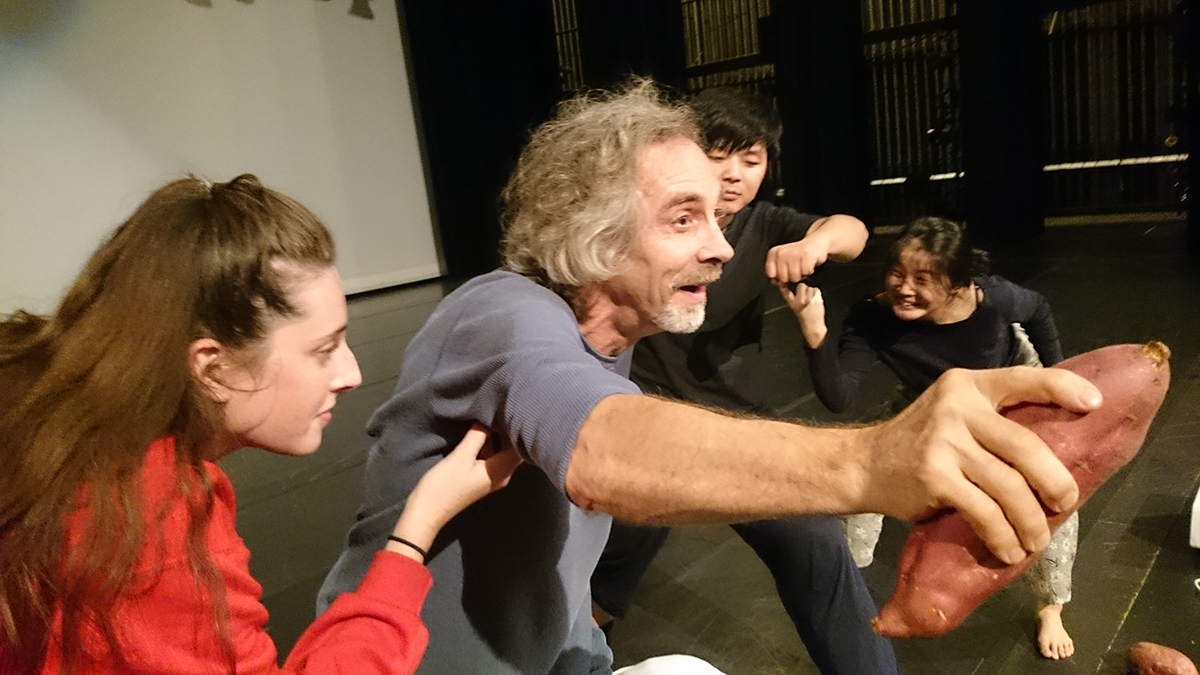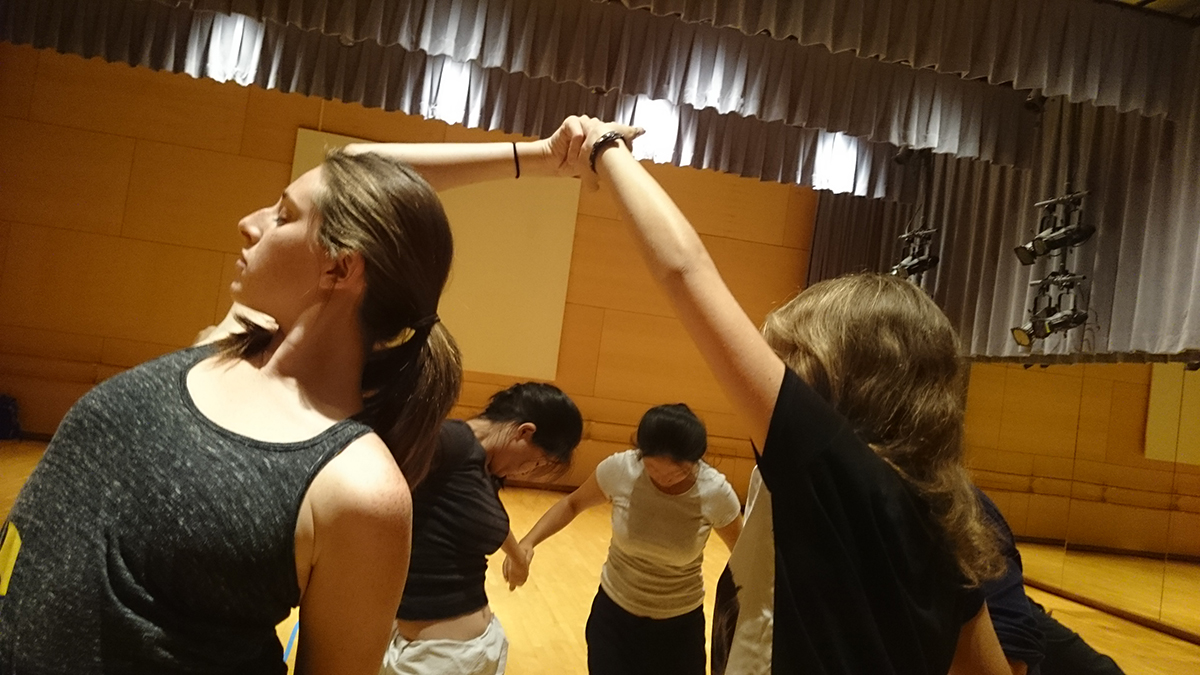PMA expands international opportunities
By Kathy Hovis


With a residency by Chinese artists and visitors offering lectures and workshops on global performance traditions, the Department of Performing and Media Arts (PMA) has expanded its international learning opportunities this fall.
The next visitor to the Schwartz Center will be Diana Looser, Ph.D. ’09, who specializes in theater of the Pacific islands. Looser delivers a public lecture, “(Dis)appearing Islands: Climate Change and the Future Geographies of Oceanic Performance,” Nov. 23 at 4:30 p.m. and will offer master classes and work with students in the Global Stages class, taught this semester by associate professor Sara Warner, author of a grant PMA received from Global Cornell to support internationalizing the curriculum.
“The Global Stages course came out of our curriculum changes from theater, film and dance to performing and media arts,” Warner said. “The old course, History of World Theatre, was taught on a chronological model that privileged Western European theater and we wanted to get away from that. With this grant, we wanted to give our students the opportunity to explore more traditions in two specific geographic areas, Asia and the Americas.”
Other visitors this fall have offered classes and performances related to their work, from Rasa Boxes (performance techniques using Hindu dance drama) to a Yiddish theater festival. Visitors in the spring will teach hip-hop theater, Japanese Suzuki acting methods and other topics.
“Through this approach, students learn the theoretical material in class, but they also get to put it into practice,” said PMA assistant professor Karen Jaime ’97, who will teach the spring Global Stages class.
“The idea is that this embodied dynamic will foster a different kind of understanding of cultural difference,” Warner said. “When you actually participate in the rehearsal process or learn certain kinds of techniques, it’s a completely different understanding of emotion and what motivates the actor.”
Kiki Hosie ‘17 said the classes with Paula Murray Cole on Rasa Boxes were particularly effective in this way.
“Over the course of two class periods, we jumped from Rasa Box to Rasa Box, becoming and embodying the essence of anger, fear, happiness, seduction ... the list goes on,” Hosie said. “It was vital to our understanding of the various assigned texts at the time, but also informed our knowledge about our own ability to take on and try out new techniques. The engagement also had the unintended effect of bonding the students in our class together.”
Global Stages students this fall also participated in the three-week residency of Caochangdi Workstation, a Beijing performance art and documentary film/video company founded by filmmaker Wu Wenguang and choreographer Wen Hui. That residency and other Cornell-Chinese cultural exchanges are supported by another Global Cornell grant written by PMA faculty, including Jumay Chu, senior lecturer in dance.
The five artists worked with a group of students and visiting lecturer Jeff Guyton to put together a dance/theater/multimedia performance Sept. 26 at the Schwartz Center. The process was a new one for many of the students, who worked four hours a day for two weeks to create and prepare the piece.
“In dance, our department is more formalist in the way we work,” Chu said. “We work with compositional or theoretical ideas. But Wenguang and his colleagues work more narratively, more dramatically, more in line with the way theater is taught.”
The piece they developed complemented a documentary the visiting artists had created on hunger and memory related to China’s Great Famine of 1958-61.
“We improvised, doing different studies delving into the ideas of memory and of poverty,” Chu said. “We talked about what it means to be hungry, not only in terms of physical hunger but the metaphorical as well.”
Though the performance was changing up until curtain time, she said the students were comfortable with the process.
“It was about following your instincts and going with them,” said Siobhan Brandman ’17. “It was refreshing to do something that was malleable and constantly changing.”
Brandman said the process reinforced the reasons she wants to be involved in theater: “It’s about telling a story or communicating a culture to people who might not know anything about it.”
Aleksej Aarsaether ’17 said Caochangdi Workstation’s performances “truly revealed the struggles of the Great Famine of China, and the solo dance piece in the beginning gave me new insight on the generational divide of culture within Chinese families.”
Chu will bring Caochangdi Workstation back to Cornell next year and include Cornell film students in the process. She is developing a student exchange program with Cornell Abroad so Cornell students can study with the artists in Beijing.
Likewise, Warner is applying for another Global Cornell grant, hoping to bring more artists, from the Middle East and Africa, to campus next year.
Kathy Hovis is a writer for the College of Arts and Sciences.
Media Contact
Get Cornell news delivered right to your inbox.
Subscribe